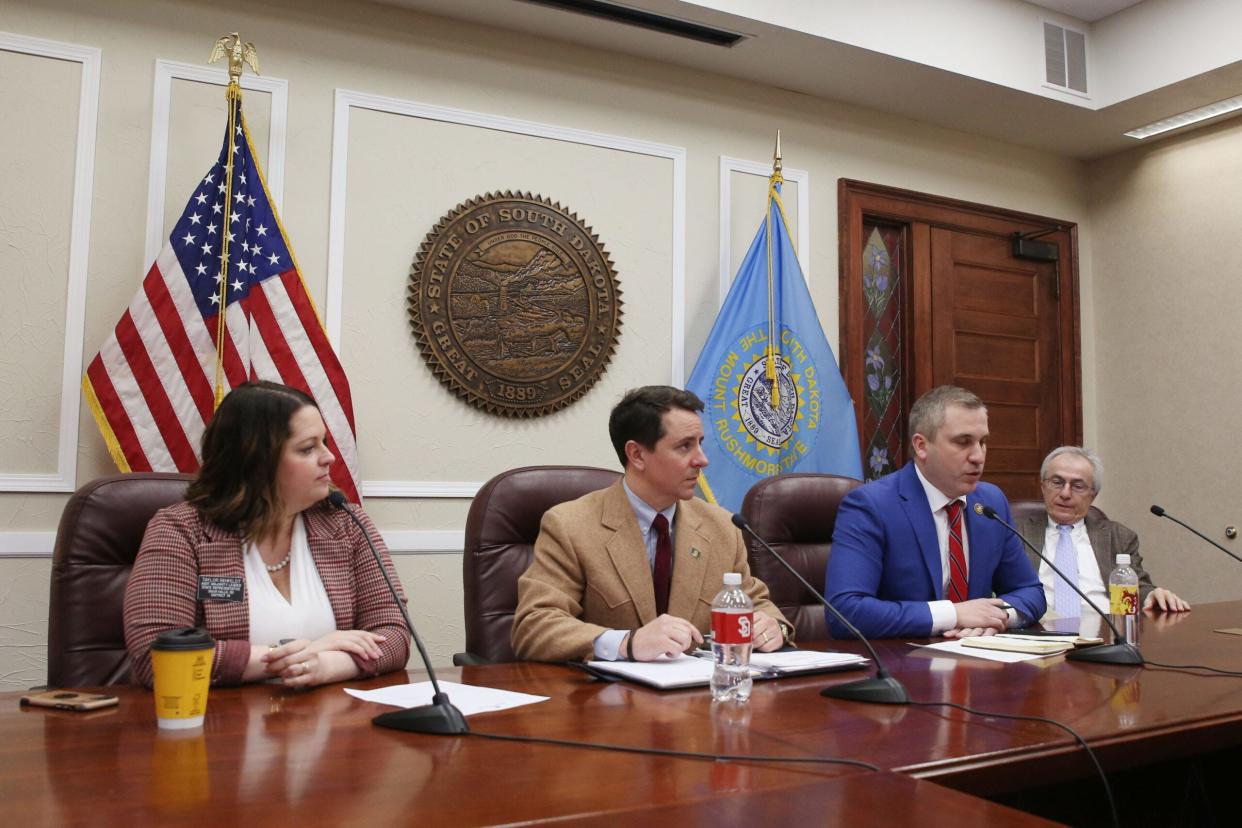South Dakota long-term care committee’s work translates into legislative success

Out of the 12 recommendations made by an interim legislative committee studying the sustainability of long-term care in South Dakota, most passed the legislative process or were implemented outside of the Legislature.
That’s a clear success, said committee co-chair Sen. Jean Hunhoff, R-Yankton. Legislators were challenged last year to produce recommendations that would pass through the process, something that summer studies have struggled with in years past. This year’s legislative session ended last week, except for a day on March 25 to consider vetoes.
Concerns surrounding South Dakota’s long term care industry came to a head when several nursing homes closed after the COVID-19 pandemic. More than 15 South Dakota nursing homes have closed since 2017. The facilities cited short staff, rising costs and years of insufficient Medicaid reimbursement.
The problem could worsen as South Dakota’s population ages. As baby boomers near the end of their lives over the next 20 years, an increased demand for long-term care services could strain the industry.
State funding for nursing homes increased by an average of 25% statewide after the Legislature and Gov. Kristi Noem approved more money for them during the 2023 legislative session, which alleviated some short-term funding concerns.
Summer study committees allow legislators to understand a problem and study its challenges and potential solutions. They provide for more informed, effective legislation over time, said Sioux Falls Republican Rep. Taylor Rehfeldt, who co-chaired the committee with Hunhoff.
Priorities outlined by the interim committee ranged from telemedicine grants to making it easier for some out-of-state health care professionals to work in South Dakota.
Hunhoff’s top priority was investing in regionalized nursing homes. The effort, which would have incentivized nursing homes to consolidate, failed.
“I’m not tied to it, but I still believe we have to do something, because we have to have access to those services and we cannot continue to support all the entities that we have out there,” Hunhoff said. “My thought would be that if I get reelected, then we regroup with stakeholders and see if we can find something more acceptable.”
The long-term care sustainability discussion must continue, Rehfeldt said. The committee found there was more demand and need for state investment in facilities and technology than the Legislature appropriated.
The discussion is especially important for facilities that are closely located and fighting for the same workers.
“No one wants to hear that, I don’t want to hear that, communities don’t want to hear that — but those are the facts,” Rehfeldt said. “We just don’t have enough workforce available to take care of our aging individuals.”
Summer study legislation that passed
A resolution requiring the state Department of Health to create a health care workforce report.
Legislation making it easier for out-of-state advanced practice registered nurses, social workers, counselors and psychologists to practice in South Dakota.
$2 million in grants for technology equipment for long-term care facilities.
Legislation improving access and reimbursement for palliative care, which is specialized, coordinated physical, emotional and spiritual care for patients with chronic and terminal illnesses.
$5 million in telemedicine grants for long-term care facilities.
Increasing the Medicaid personal needs allowance from $60 to $100 (included in the Legislature-approved budget).
Amending and expanding in-home services and establishing new reimbursement rates (health care providers received an increase to reach 98% cost reimbursement for patients on government-funded care such as Medicaid).
Failed summer study bills
Conducting a study into the feasibility of supporting a state Program of All-inclusive Care for the Elderly (PACE), which is a Medicare and Medicaid program intended to keep people in their homes instead of nursing facilities (the bill was tabled, and the study will be completed by the administration).
Legislation encouraging consolidation of long-term care facilities.
Summer study recommendations not introduced
Implementing a waiver incentivizing long-term care facilities to establish adult day care (not implemented yet).
Establishing eligibility for community support provider services for adult traumatic brain injury patients (not implemented yet).
Updating processes for Dakota@Home, the state’s resource and referral database for care services (discussions are ongoing).
This article originally appeared on Sioux Falls Argus Leader: Long-term care committee’s work translates into legislative success

